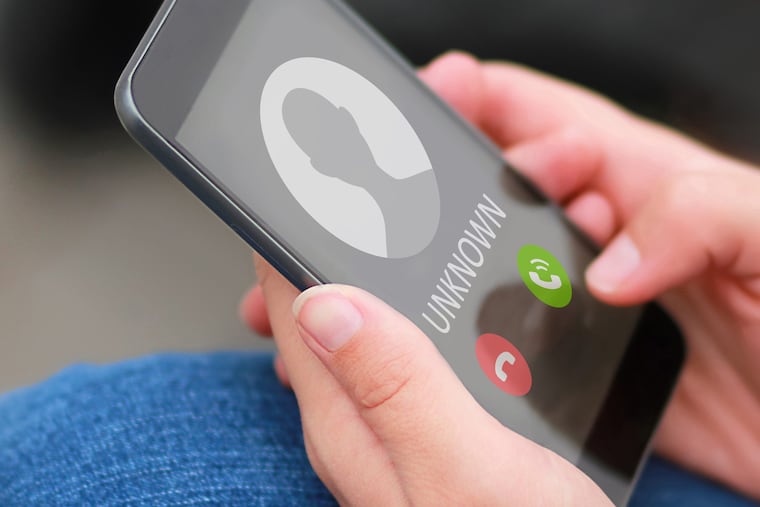There’s a dramatic increase in robocalls this holiday; watch out for scammers posing as charities
A survey of 1,000 U.S. mobile phone users found that 16 percent have recently received a scam call from someone claiming to be from a charity. More than a quarter of those who took the call lost money.

It’s the most wonderful time of the year for scammers.
This holiday season, fraudsters are posing as charities to take advantage of people’s generosity, according to a new survey from First Orion, an Arkansas-based call management company that combats scam robocalls.
The survey of 1,000 U.S. mobile phone users found that 16 percent have recently received a scam call from someone claiming to be from a humanitarian group. And the swindles are working — more than a quarter (26 percent) of those who took a call from a fake charity forked over some money, the survey said.
Scammers can use caller ID “spoofing” technology to disguise their phone numbers and make the calls seem to be coming from actual charities, said Gavin Macomber, First Orion’s senior vice president of marketing. When legitimate numbers are hijacked, even careful consumers can get fooled into thinking they’re on the phone with a charity representative.
“They can really purport to be from that organization,” Macomber said of scammers. “And if somebody were to call [the phone number] back or Google it quickly while they were on the phone, it would probably check all of the boxes.”
Consumers feeling generous this holiday season should donate to charities directly through the groups' websites, rather than over the phone to an unsolicited caller, Macomber said.
The Pennsylvania attorney general’s office said it hasn’t received robocall-related charity scam complaints this year.
Scam calls and cyber crimes typically spike this time of year, but the overall rapid rise of robocalls has contributed to a dramatic increase in holiday scam calls this year, First Orion found.
The survey, conducted earlier this month, said scam calls jumped 129 percent this holiday season compared with the same time last year. At least 62 percent of users said they received a scam call within the last week, compared with 27 percent last year. More than half said they get more spam calls than real ones each day.
First Orion, which develops call screening technologies for T-Mobile, recently predicted that nearly half of all calls will come from scammers by next year after examining 50 billion robocalls during an 18-month period.
The findings are consistent with those of other groups that track robocalls. YouMail, a robocall blocking application, said there were 5.1 billion robocalls nationwide in November, compared with 2.7 billion the same month a year earlier.
Few users are fooled overall. Only 8 percent of the 1,000 surveyed by First Orion said they suffered a financial loss from a scam call. Of those duped, 43 percent gave away credit card information, 28 percent disclosed their Social Security number, and 11 percent handed over a username or password.
According to the survey, gift card scams along with bank and credit card-related frauds are the most effective, with 58 percent of victims identifying those categories as the type of call that robbed them. Gift card scams are similar to the common cruise and vacation frauds, as scammers offer $100 gift cards at a steep discount, Macomber said. Scammers posing as banks or credit card companies will try to obtain personal information.
Holiday scams are not limited to robocalls. The Better Business Bureau warns consumers to be wary of several holiday-themed scams, including phishing emails that appear to come from UPS or FedEx. The emails typically include links that ostensibly track packages, but clicking them exposes consumers to cyber attacks.
Consumers can file complaints about scams through the Pennsylvania and New Jersey attorney general’s offices, or with the Federal Trade Commission.